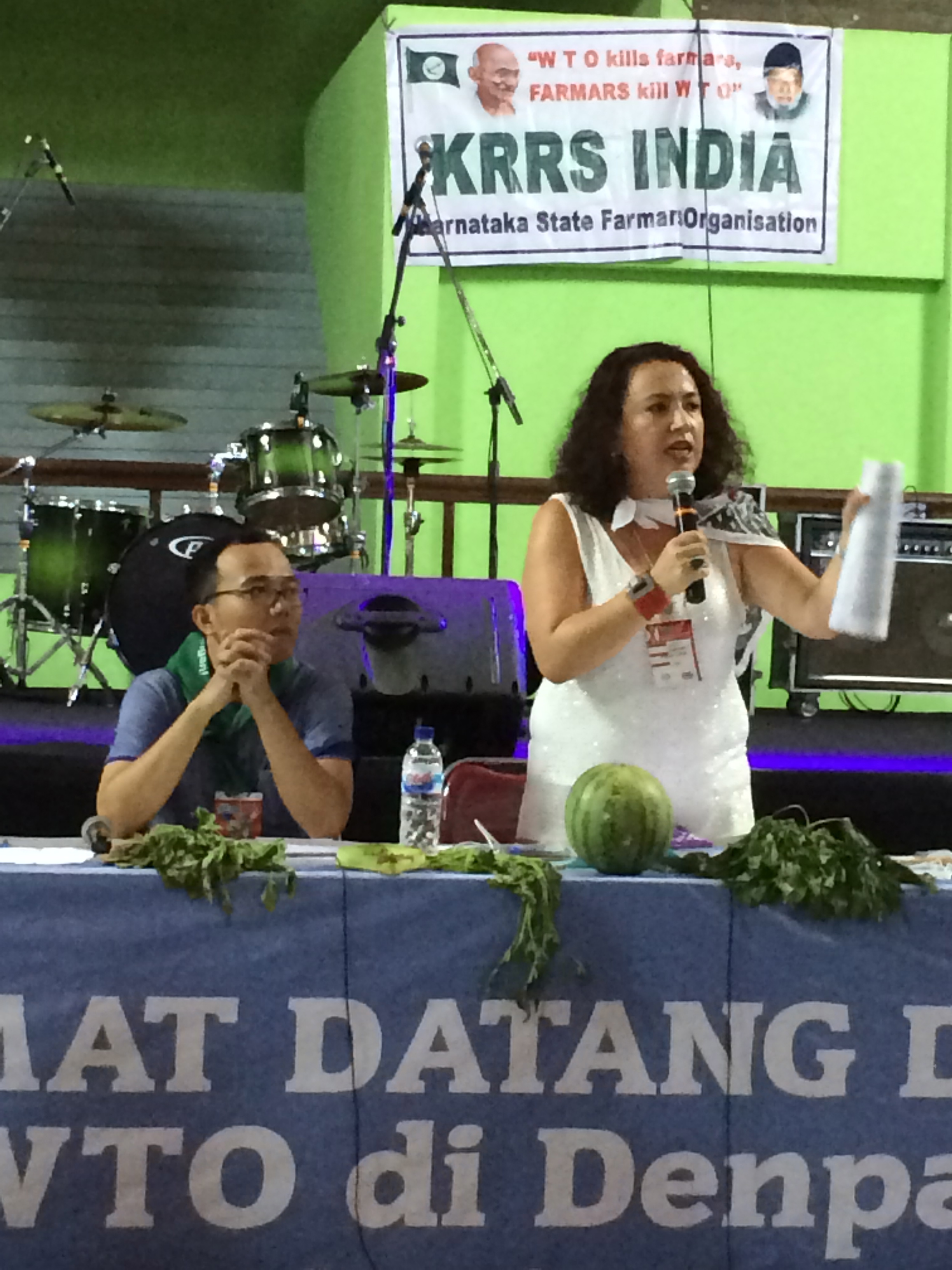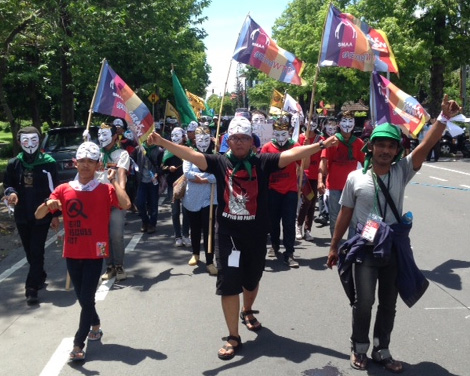by Edgar Franks, Community to Community
Many times we are asked about what does an alternative to capitalism and free trade look like? Trade has been part of our history and contributes to our human interaction. To be clear, the total elimination of trade is not a solution to modern transnational trade pacts and agreements. However a critique and analysis from the grassroots has established that trade and neoliberalism is tearing apart the fabric of communities and nations. Capitalism is far too destructive. It can not be reformed because of the economic and environmental crises caused by it’s need for endless growth and consumption.

Now more than ever, we need an economic model that prioritizes the harmony between people and Mother Earth over unsustainable forms of production and accumulation of wealth and resources. We the people from the grassroots not the corporations or corrupt politicians and governments will be determining our own path to an economic model that is designed to respect human dignity.
The second day of convergence at the #EndWTO Week of Action in Bali, focused around what an alternative to Capitalism and Free Trade would look like from a peoples perspective. Social Movements for an Alternative Asia (SMAA) released the alternative economy vision statement as the foundational document for the economic justice assembly. The SMAA “Economy for life in our Earth Community” document emphasized social and environmental justice and universal human rights. In this vision of an economy of a new type, the contributions from all sectors will be represented and all people will have a space where they belong in community with others.
“We feel it is important for this gathering to happen because we want to join Gerak Lawan and SMAA in showing everyone that the WTO and other Free Trade Agreements do not benefit farmers, workers, youth or local developing economies,” said Indi Hikam of the Youth Food Movement Caravan. “The WTO is a tool that only benefitted Western Countries like the US an European Nations as a form if modern colonialism where important resources are extracted and commodified in a way that destroys emerging local countries.”

The first day of the convergence introduced the history and context of why we are in Bali. The second day focused on visioning an alternative economic vision and a call for social movements to begin practicing alternative models at the local levels of our communities.
No matter the language you speak, the language of struggle is universal. The growing leadership from the grassroots movements in Asia and the global South are leading us into a direction to a world where many worlds can live and have a space. People from the Global South know the serious implications that neoliberalism has caused within their communities and nations. They know that reforming or compromising is a false solution.
This reality has yet to take hold within mainstream society in North America. The oppressed and marginalized of our own country are fighting and struggling with the harmful effects of capitalism. Indigenous people, immigrants, African Americans, working class white people and the LGBT community have been at the forefront of fighting against this exploitative system. Within our own country with all of its wealth, a vast number of people are beginning to recognize that help is not on its way. The only thing we have left is to organize as a way of survival.
Through actions like the #EndWTO Week of Action in Bali, grassroots movements within the US are deepening our alignment with the movements of the Global South. The social movements in Asia are showing us all how to create an alternative economy and world.
